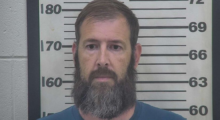 As we, in solidarity with individuals and organizations across the world, continue to express our sympathies to those affected by the tragedies of the Aurora theater shooting of July 20th, SevenPonds wants to touch on a subject we have yet to scratch the surface of: trauma. An event of this magnitude is followed by the type of grief and loss we’re familiar with, but additionally, families, survivors, and others in the community will be affected by this much harsher type of emotional shock.
As we, in solidarity with individuals and organizations across the world, continue to express our sympathies to those affected by the tragedies of the Aurora theater shooting of July 20th, SevenPonds wants to touch on a subject we have yet to scratch the surface of: trauma. An event of this magnitude is followed by the type of grief and loss we’re familiar with, but additionally, families, survivors, and others in the community will be affected by this much harsher type of emotional shock.
To learn more about the topic of trauma, we want to share with you a piece written by Carolyn L. Mears of the University of Denver. Mears is the author of “Reclaiming School in the Aftermath of Trauma: Advice Based on Experience” and “Experiences of Columbine Parents: Finding a Way to Tomorrow,” written in response to the 1999 shootings at Columbine High School, where her son was a student. She speaks internationally about trauma recovery, crisis preparedness and school safety.
We draw these lessons from Mears’ article written for CNN in response to the Aurora tragedy:
Many people will be affected in unexpected ways.
Mears wrote, “All who were present, or responded to the scene, or had loved ones there, have experienced a traumatic event.” But it’s not limited to those who experienced the tragedies first-hand. “Even those who hear about the event and identify with the victims may feel traumatized,” she goes on.
Survivors can be left with strong feelings of guilt, in addition to their own trauma and loss. Mears wrote, “Feelings of vulnerability may be compounded by survivors’ guilt as they struggle with why they escaped when others didn’t.”
“Trauma is a natural, biological response affecting all areas of function—psychological, emotional, mental, physical, and spiritual.”
The pain will outlast the nation’s sympathy
Across the nation, people have heard the news, and they will react with shock, outrage, fear, and sympathy, “But over time,” Mears added, “a traumatized population will be left on its own with the implied message: It’s time to get over it and move on.”
This event will slowly fade from the headlines, those of us who were not in the theater, who haven’t lost a loved one, who didn’t respond with a rescue team, who weren’t working at the hospital, who weren’t reminded of past traumas by this most recent news, will slowly begin to forget. The radius of sympathy will gradually shrink, until the community of Aurora is left alone with the memory.
Relationships may change.
“You may feel distanced from others who haven’t experienced a trauma,” Mears warned to the survivors and others affected. It may be difficult to connect with the people you were close to before the event, but you may also form connections with others who have experienced similar trauma.
You don’t have to be alone.
“Telling your story to a trusted listener can help you work through your experience,” Mears wrote.
Take care of yourself.
The feelings that linger after a traumatic event can foster extreme reactions. Mears warned, “Be alert to extreme response such as substance abuse, or rage, or suicidal thoughts.”
“A gradual return to a familiar routine is helpful.”
A slow return to the life you knew before the tragedy is healthy and normal. You don’t have to launch immediately into your old routine in order to “get over it”.
“Don’t assume things will go back to what was before. You have been changed…”
Recovery takes time, and you can appreciate what you have learned and how a traumatic experience can strengthen you for the future.
I urge you to read the full article for Mears’ reaction.
If you are seeking solace after this tragedy.
- Read more about coping with loss from our After Death guide.
- Find grief counseling and therapy in the San Francisco Bay Area in our Local Resources.

 Trauma After the Aurora Theater Shooting
Trauma After the Aurora Theater Shooting



 Our Monthly Tip: Toast a Loved One with a Personalized Glass
Our Monthly Tip: Toast a Loved One with a Personalized Glass
 My Cousin’s Death Taught Me the Meaning of Life
My Cousin’s Death Taught Me the Meaning of Life















The killing of teens of sooo wrong…
Report this comment
My friend’s daughter was there. Jessica Redfield Ghawi 11/89-7/20/12
A 6 y.o girl died there and her mother, who was with her, suffered multiple gunshot wounds. She lost her baby (she was pregnant), her living daughter and the ability to ever walk again.
Report this comment